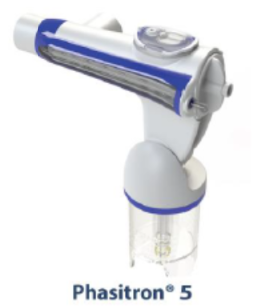FDA announces Class I recall of ventilators after 3 patient injuries
The U.S. Food and Drug Administration (FDA) has issued a recall on behalf of ventilator manufacturer Percussionaire after a nickel coating was found on the breathing circuits of one of its products. Nickel can react to various drugs used in conjunction with the mechanical ventilator, causing lung injury, airway spasm, anaphylaxis, and possibly death.
There have been three reported injuries associated with use of the Intrapulmonary Percussive Ventilation (IPV) Phasitron 5 breathing circuit. No one has died. However, because of the serious risks the defect poses to patient health, the recall has been given a Class I designation, reserved for the most serious type.
What is being recalled?
Certain lots of the Percussionaire Phasitron 5 ventilators are subject to the recall. More specifically, the breathing circuits are being recalled because of the nickel coating.

Here are the recalled part/lot numbers:
- P5-10/240329, 240412,240430, 240509, 240516, 240614, 240625
- P5-HC-5/240321
- P5-UC-10/240627
Patients and providers are to cease using the devices immediately.
Next steps
If there’s an emergency situation and recalled Phasitron 5 ventilators must be used, the FDA and Percussionaire have updated safety instructions that operators should follow:
- Rinse with sterile water after use and allow the ventilator to air dry.
- Only use saline as the liquid in the nebulization cup.
- Stop use if unexpected symptoms occur.
- Do not use the ventilator to deliver medications.
- Do not use it for more than 2 weeks.
- Do not use it on any patient in an inflammatory state.
The company said all customers have received a notice of the recall with instructions on how to obtain replacements.
The full recall notice can be found here.

